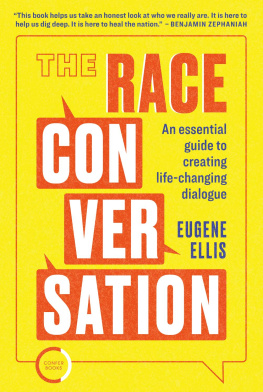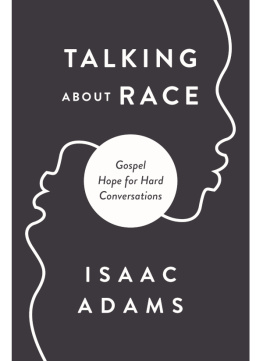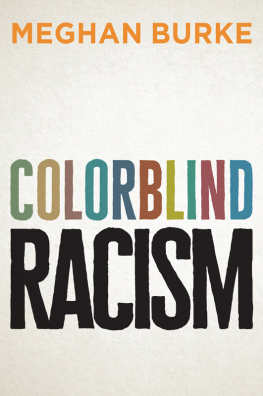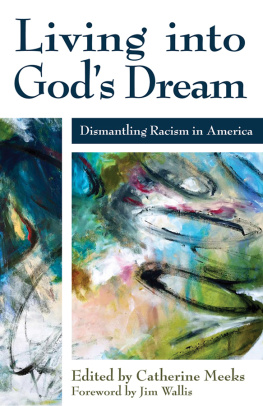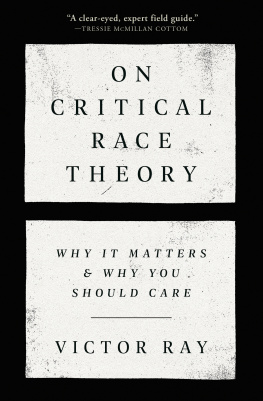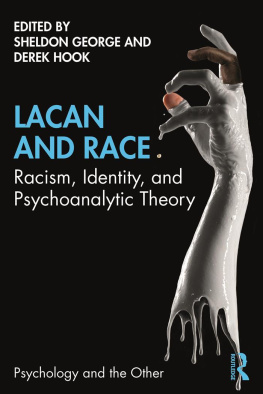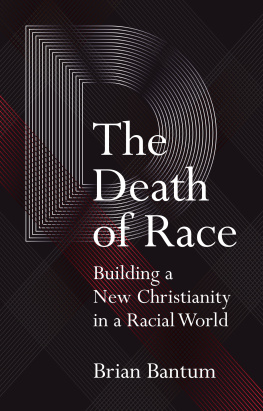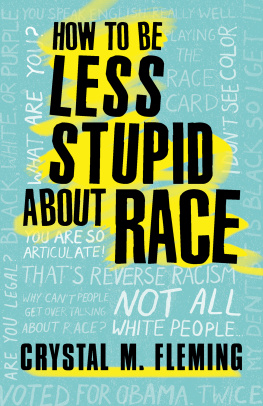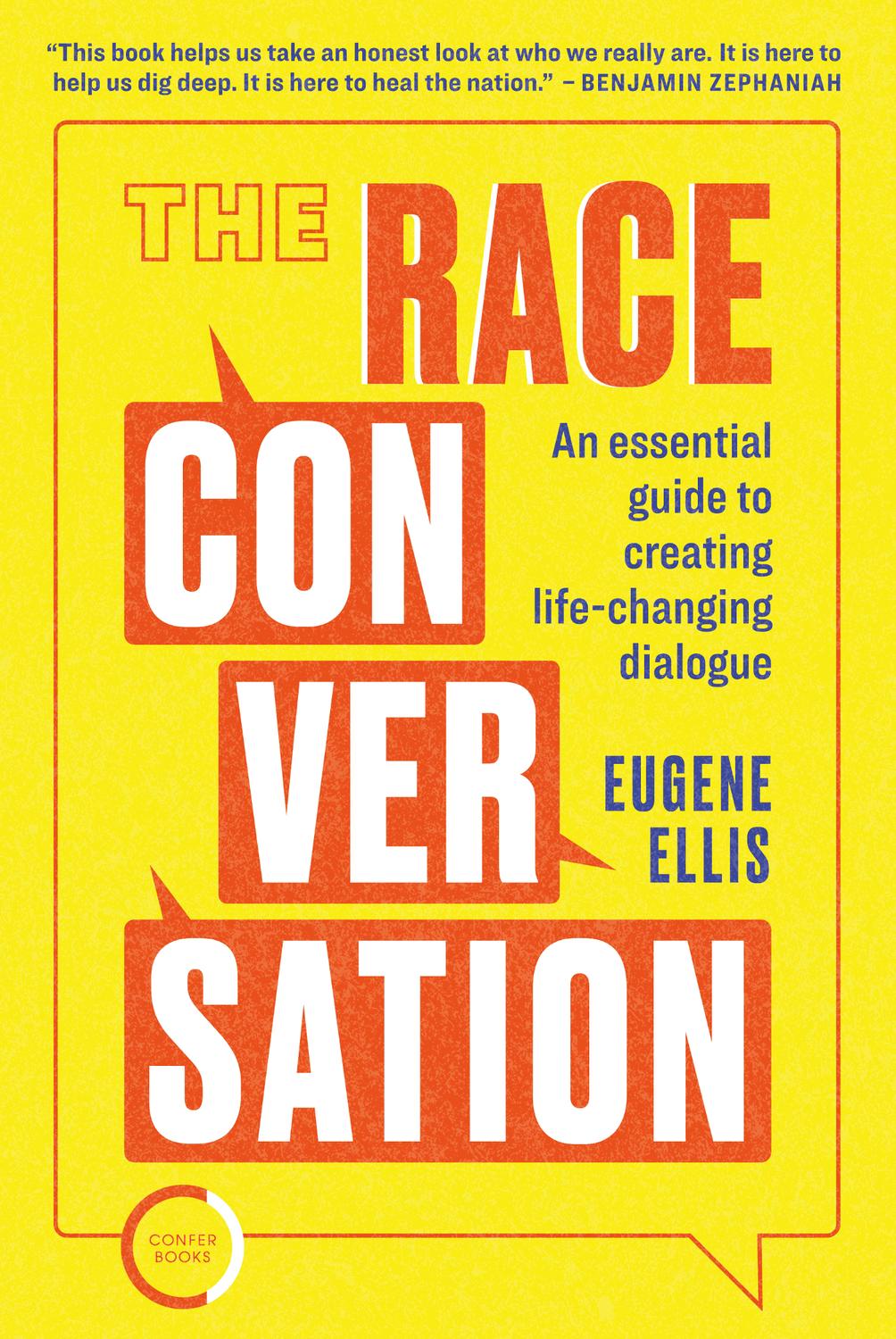Further praise for The Race Conversation
This book has been written to help us take an honest look at who we really are. It is here to help us dig deep. It is here to heal the nation. Im no psychotherapist, but I get it. After years of experience on the front-line helping people like me, Eugene has written a book that I believe can change the way we relate to each other, and the way we relate to ourselves. He writes in a logical, accessible way, and makes The Race Conversation, our conversation.
Benjamin Zephaniah
Launched from his personal and professional experience as a therapist, Eugene Ellis presents an insightful and empirical text. He addresses rage, vulnerability and trauma across racial minds and creates a pathway to the understanding of racial dialogue. The book emphasises the multi-faceted positions of racism, mindfulness and body connections that trigger racial arousal. Language with a slight bite and examples of dialogue prompt further understanding and unravel race construction. An undercurrent of external and internal prompts such as white fragility and white privilege are used to contextualise interrelationships between African and Asian people and white people. This book is an important contribution to keeping the race conversation alive.
Isha Mckenzie-Mavinga, psychotherapist and author of The Challenge of Racism in Therapeutic Practice
In this comprehensive text, Eugene Ellis describes a pathway to racial understanding, speaking to both the history of racism and the psychology of race relations, interwoven with a mindfulness-based, somatically-informed model for addressing the effects of this history on all of us. He leaves us with much to converse about!
Janina Fisher, Ph.D., author of Transforming the Living Legacy of Trauma and Healing the Fragmented Selves of Trauma Survivors
Eugene Ellis has powerfully captured the nuances and fractures of trauma, where our minds and bodies have been dehumanised for far too long, and takes us towards reclaiming our sanity and positive growth. This is a must have book for all therapists working with people of African and Asian diaspora heritage who want to understand the impact of historical and modern-day racism on the Black British psyche. This timely publication, in the context of Black Lives Matter and racial trauma, will help practitioners to create the space and dialogue for inclusive conversation and change with their clients and the wider community.
Patrick Vernon, OBE, social commentator and co-author of 100 Great Black Britons
ii It would be impossible to exaggerate how important this book is for our times. Written, as it was, in the wake of Brexit, the election of Donald Trump and of Black Lives Matter, it tells of the damaging way that conscious and unconscious ideas of race are woven into society. This is a time when the divisive nature of race is beginning to be better understood but is, at the same time, resurgent. Race is a construct with a terrible history that is held deep within the body of individuals and in communities, both white and non-white. Eugene Ellis brings both personal experience and psychotherapeutic insight into this, often fraught, area with compassion, thoughtfulness and rigor. He is one of the few people who can bring political, societal and psychological insights together to help us through to a more healthy and equitable society.
Judy Ryde, author of White Privilege Unmasked: How to Be Part of the Solution
How the mental construction race affects the inner life, the very bodies, of individuals is little recognised and less explored. The Race Conversation is a ground-breaking and timely study that brought me, a white English Buddhist, new awareness of my own inner experience and has already benefitted my participation in the race conversation through greater understanding of how the construction of race impacts on the psychic and somatic experience of people of colour.
Subhuti, member of the Triratna Buddhist Order, President of the London Buddhist Centre, and author of Mind in Harmony: The Psychology of Buddhist Ethics
Dedicated to my wife, Jayakara, who has kept me out of confusion, brought me back to earth time and again and given me her unwavering support.
Eugene Ellis is the Director and Founder of the Black, African and Asian Therapy Network (BAATN), the UKs largest independent organisation to specialise in working therapeutically with black, African, Caribbean and south Asian people. He trained as an integrative arts psychotherapist and has worked for many years with severely traumatised children and their families in the field of adoption and fostering. He has a special interest in body-orientated therapies and facilitating self-healing through the use of metaphor and the imagination.
Eugene has a particular interest in facilitating race conversations with the therapeutic community in the UK through articles and podcasts. He is also active in facilitating a dialogue around race as it relates to the body within organisations and in psychotherapy training. x
I feel honoured to have had many fruitful race conversations with those who have given their permission to be featured in this book and thankful for their candidness and honesty.
Cathy Ingram, Gary Baron, Kam Sanghera, Maitrinita, Mickey Peake, Nandaraja, Patrick Harrison, Dr Phil Cox, Roshmi Lovatt, Ruth Calland, Sabina Khan, Sharon Beirne, Sujhayini, Tali Lernau and Warren Davis.
I want to thank BAATN members and attendees of BAATN trainings and forums over the years for their contribution to my thinking and process.
I am grateful to the BAATN leadership team who, for many years, helped me stay sane and process the many corridors of the race construct.
Carmen Joanne Ablack, Dennis L Carney, Dr Isha Mckenzie-Mavinga, Ian Thompson, Poppy Banerjee, Jayakara Ellis, Karen Minikin, Rotimi Akinsete and our beloved brother Arike who recently passed.
I am indebted to Manjusiha and George Bunting for their support with the manuscript and Catherine Jackson for her encouragement over many years.
Finally, Im thankful for the teachings and the friendships of the Triratna Buddhist Community. xii
Everyday racism
Race, the body and the mind
A dance partner designed to trip us up
The language of race
The genetics and race question
Shared journeys
Everyday racism
W hen I started writing this book, the electorate in the UK had just voted to leave the European Union. It was Obamas last week in office, after serving two terms as president of the USA, and Donald Trump had just been elected president. For me, and for many others, the social narrative of the UK and America had shifted decidedly away from equality and connection towards division, separateness and protectionism. Shifting narratives of connection versus disconnection were taking place in other countries also, as feelings that had previously laid dormant had once again been given licence to be expressed.

